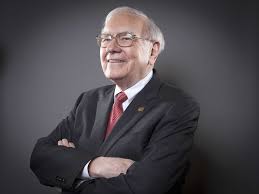They do not call him the “Oracle of Omaha” for nothing; Warren Buffett knows a good bet when he sees one. Nine years into a ten-year wager, now referred to as the “Million Dollar Bet,” Buffett has declared himself the winner.
What exactly is the “Million-Dollar Bet?” In 2007, Buffett engaged in a wager with asset management firm Protégé Partners that his simple S&P 500 Index fund would outperform a portfolio of hedge funds selected by Protégé Partners over a ten year time period. Each side wagered $500,000 that their investment strategy would outperform the other. The winner of the bet would then donate the million dollars to the charity of their choosing.
Last month Mr. Buffett devoted almost five pages of Berkshire Hathaway’s 2016 annual report to denouncing hedge funds for charging excessively high fees while delivering poor investment returns. In the annual report, he also disclosed the results of the bet through nine years of the contest. Mr. Buffett’s Vanguard S&P 500 index fund has earned an annualized return of 7.1% for the first nine years. The average of the five hedge funds selected by Protégé Partners has produced an annualized return of 2.2% over the same timeframe. The Vanguard index fund is up 85.4% overall over the first nine years, while the average overall gain of the five hedge funds is only 22%. The best performing fund of the five hedge funds is up 62.8% overall, while the worst performer is up a pathetic 2.9% overall over a nine year period.
With a little less than a year to go it is not hard to understand why Buffett has declared himself the winner of the bet. It is virtually impossible for Protégé Partners’ portfolio to best the Vanguard index fund at this point. What is a little more difficult to understand is why Warren Buffett, who is widely acknowledged as one of the most successful investment minds to have ever lived, would make the wager to begin with. With the success of Berkshire Hathaway’s active management strategies, it would make sense for Buffett to be a proponent of the active management investing strategies that hedge funds employ. Instead, Buffett took the side of the passively managed Vanguard S&P 500 index fund.
One of the reasons Buffett took his position is that he knows costs matter. Hedge funds generally employ a “two and twenty” cost structure, meaning the internal expense ratio of the fund is around 2.0% and the fund managers then take 20% of the fund’s investment gains as compensation. Index funds like Vanguard’s S&P 500 Index have expense ratios below 0.50%, and oftentimes closer to 0.10% or 0.20%. Lower fund costs keep more money in investors’ portfolios and out of the hands of fund managers.
Another reason for Buffett’s position is that he knows how difficult it is to beat the market and how easy it is to make mistakes when investing. Yes, even Warren Buffett makes investment mistakes. Ironically, Buffett considers his initial purchase of Berkshire Hathaway (a struggling New England textile maker at the time) in 1964 among his biggest mistakes of his career. If Warren Buffett makes investment mistakes, and if data routinely shows the futility of hedge fund managers and actively managed mutual funds in attempting to beat the market indices, what chance does the average investor have?
Finally, Buffett understands the importance of time horizons when making investment decisions. The “Million-Dollar Bet” spans a ten-year time horizon. Buffett knows that many investments, including some of the hedge funds he is competing against, can outperform the market in a short time horizon. Buffett also understands that it is nearly impossible to continually beat the market (or the indices that represent a market) over a lengthy period.
The “Million-Dollar Bet” has been an interesting story to follow for the past nine years, as well as fertile ground for learning valuable investing lessons. Warren Buffett has positioned himself to win the bet because he understands three essential points about successful investing. It is important that we all remember these lessons as well.
First, Buffett understands that costs matter in investing, and lower cost investments have a decided advantage over more expensive options like hedge funds. Secondly, Buffett knows how difficult it is to beat the market consistently and how easily investors can make mistakes. While he is still the “Oracle of Omaha,” Buffett has made his share of investing mistakes along the way. Finally, Buffett understands the importance of keeping perspective about investment time horizons.
Sources: Forbes, Fortune, The Wall Street Journal

